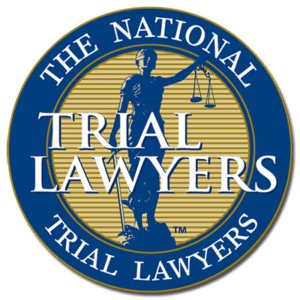
You may feel nervous when facing surgery or a medical procedure, especially if you have to undergo anesthesia. You probably trust your medical team implicitly. After all, they’ve done this countless times before. But when something goes wrong, what should have been a routine procedure turns into a nightmare.
Suddenly, you’re facing a long road of recovery, mounting medical bills, and an uncertain future – all because of an anesthesia mistake that should never have happened.
At Hollander Law Firm Accident Injury Lawyers, you can count on an experienced anesthesia error attorney to get justice and secure financial relief for injuries and losses resulting from anesthesia malpractice.
You didn’t deserve this. Your trust was broken, and now you’re left dealing with the consequences of someone else’s negligence. It’s unfair and overwhelming. However, you have rights, options, and a powerful ally at Hollander Law Firm Accident Injury Lawyers ready to stand in your corner.
Table of Contents
Why Choose Hollander Law Firm for Your Anesthesia Malpractice Case?

At Hollander Law Firm Accident Injury Lawyers, we understand this isn’t just another case – it’s your life, health, and future. It is perfectly normal to feel angry, confused, and scared about what comes next. Our personal injury attorneys can help provide peace of mind.
Our team has a proven track record of success in medical malpractice cases, particularly those involving complex anesthesia errors. We’ve spent years building relationships with top medical experts who can provide crucial testimony to support your case. Our in-depth understanding of Florida medical malpractice laws ensures we can navigate the legal landscape effectively on your behalf.
Hollander Law Firm Accident Injury Lawyers has represented injured patients and families in South Florida since 1996. We’ve stood beside hundreds of patients just like you. We’ve heard your stories, felt your frustration, and fought tirelessly to right the wrongs you’ve suffered. Contact our law office to schedule a free case review to discuss how we can help you.
Understanding Anesthesia Errors
Anesthesia is a critical component of many medical procedures, but the consequences can be catastrophic when mistakes occur. Anesthesia errors involve medical negligence. Medical malpractice happens when a medical provider fails to deliver the proper standard of care and causes injury to a patient.
Many surgical errors are classified as serious reportable events, or never events, by the National Quality Forum. These errors have severe consequences but are deemed entirely preventable. This category includes mistakes that result in the intraoperative or immediate postoperative death of otherwise healthy patients, classified as Class 1 patients by the American Society of Anesthesiologists (ASA).
When a mistake could have been avoided using current medical knowledge, reasonable skill, and attention, it may be considered malpractice.
How Often Do Anesthesia Errors Happen?

Recent analyses indicate that anesthesia mistakes remain prevalent, with various studies shedding light on their frequency and impact. According to an Anesthesia Patient Safety Foundation report, medication errors, including those related to anesthesia, occur frequently, with approximately one drug administration error occurring for every 133 anesthetics administered in the operating room.
A study published by the National Institutes of Health revealed there were 17,116 anesthesia mistakes reported in the United States between 2007 and 2014, as well as 131 deaths linked to anesthesia errors during these years.
Every year, countless patients across Florida fall victim to anesthesia mistakes. These errors can leave lives shattered, dreams derailed, and families struggling to pick up the pieces. It’s a harsh reality that no one expects to face when they enter a hospital or surgical center.
Common Anesthesia Mistakes
- Improper dosage (over or under-medication)
- Failure to monitor vital signs
- Delayed anesthesia administration
- Failure to recognize or respond to complications
- Intubation errors
- Allergic reactions due to inadequate patient history review
- Communication errors between medical staff
Anesthesia Error Injuries
These preventable mistakes can result in severe injuries such as:

- Brain damage
- Organ failure
- Nerve injuries
- Cardiovascular complications
- Respiratory distress
- Prolonged unconsciousness
- Wrongful death
You may recover compensation through a medical malpractice lawsuit if you experienced any of these injuries due to an anesthesia error.
What Are an Anesthesiologist’s Responsibilities?
An anesthesiologist’s responsibilities are among the most critical in the surgical process. Beyond simply ensuring the patient remains sedated or unconscious during the procedure, their role involves several complex and vital tasks.
Anesthesiologists are responsible for:
- Choosing the appropriate type of anesthesia to administer
- Calculating the correct dosage tailored to the patient’s needs
- Monitoring the patient’s vital functions continuously during surgery
- Assessing potential negative drug interactions while the patient is sedated
- Determining the safest method for administering the anesthesia
The proper type and dosage of anesthesia depend on various factors, including the patient’s medical history, age, and the nature of the surgical procedure. Errors in any of these areas can have severe, life-threatening consequences.
Types of Anesthesia and Associated Risks
The anesthesia used during a medical procedure can significantly affect your experience and potential risks.
At Hollander Law Firm Accident Injury Lawyers, we believe that knowledge is power. We understand the different types of anesthesia and their associated risks, which may help us recognize when anesthesia malpractice has occurred.
General Anesthesia
General anesthesia renders you completely unconscious during a procedure. While it’s commonly used for major surgeries, it carries the highest risk of complications.
Potential risks include:
- Respiratory problems, including difficulty breathing after the procedure
- Postoperative confusion or delirium, especially in older patients
- Rare but serious complications such as malignant hyperthermia
- Nausea and vomiting
Regional Anesthesia
This type numbs a large body area, such as from the waist down. It includes epidurals and spinal blocks.
While generally safer than general anesthesia, risks can include:

- Headaches
- Nerve damage
- Infection at the injection site
- Inadequate pain control
Local Anesthesia
Used for minor procedures, local anesthesia numbs a small, specific area.
While it’s the safest form of anesthesia, risks can still include:
- Allergic reactions
- Toxicity if too much is administered
- Nerve damage
- Inadequate numbing, leading to pain during the procedure
Monitored Anesthesia Care (MAC)
Also known as conscious sedation, MAC involves administering sedatives and pain relievers while the patient remains conscious.
Risks include:
- Over-sedation leading to respiratory depression
- Under-sedation, resulting in awareness or pain during the procedure
- Adverse reactions to the medications used
It’s important to note that while these risks exist, many are rare when anesthesia is administered correctly by skilled professionals. However, errors due to medical negligence or malpractice can cause severe consequences.
Recognizing the Red Flags: Warning Signs of Serious Anesthesia Errors
In the hours and days following a procedure involving anesthesia, patients must vigilantly watch their health. While some discomfort is normal, certain symptoms may indicate a more serious problem related to anesthesia errors.
Symptoms to Watch for Post-Surgery
- Unusual or Severe Pain: While some pain is expected after surgery, pain that is severe, unexpected, or unresponsive to prescribed pain medication could be a sign of complications.
- Cognitive Issues: Confusion, memory problems, or difficulty concentrating beyond the immediate recovery period may indicate anesthesia-related cognitive dysfunction.
- Nerve Symptoms: Numbness, tingling, or weakness in limbs or other body parts that weren’t directly involved in the surgery could suggest nerve damage from improper positioning or regional anesthesia errors.
- Vision Changes: Blurred vision, double vision, or partial vision loss could be signs of more serious complications.
- Breathing Difficulties: Shortness of breath or the inability to take a full breath may indicate respiratory issues related to anesthesia.
- Persistent Nausea or Vomiting: While some nausea is common, severe or prolonged symptoms could suggest complications.
- Fever: An unexplained fever in the days following surgery could be a sign of infection or other complications.
- Muscle Rigidity: Unusually stiff or rigid muscles, especially if accompanied by fever, could indicate a rare but serious condition called malignant hyperthermia.
When to Seek Immediate Medical Attention
Don’t hesitate to contact your healthcare provider or seek emergency care if you experience:
- Difficulty breathing or chest pain
- Severe, uncontrolled pain
- High fever, especially if accompanied by chills or muscle stiffness
- Sudden or severe headache
- Seizures or loss of consciousness
- Signs of allergic reaction, such as rash, swelling, or difficulty swallowing
- Inability to urinate or have a bowel movement for an extended period
- Any symptom that feels severe or causes significant concern
Remember, you know your body best. If something doesn’t feel right, it’s always better to err on the side of caution and seek medical attention. Early intervention can prevent or minimize long-term complications from anesthesia errors.
Potential Long-Term Effects of Anesthesia Errors
While many patients recover fully from anesthesia, errors can sometimes lead to lasting effects:
Cognitive Impairments
- Memory problems
- Difficulty concentrating
- Slowed cognitive processing
- In severe cases, permanent cognitive decline
Chronic Pain
- Persistent pain at the surgical site
- Nerve pain from damage during anesthesia administration
- Widespread body pain in some cases
Emotional and Psychological Impacts
- Anxiety about future medical procedures
- Depression related to ongoing health issues
- Post-traumatic stress disorder (PTSD) from awareness during surgery
- Reduced quality of life due to physical limitations or chronic symptoms
These long-term effects can have far-reaching impacts on your daily life, affecting your ability to work, enjoy hobbies, and maintain relationships. They may require ongoing medical treatment, therapy, or lifestyle adjustments.
Your Rights Under Florida Medical Malpractice Law
At Hollander Law Firm Accident Injury Lawyers, we’ve seen firsthand how anesthesia errors can devastate lives. Whether it’s an overdose of general anesthesia leading to brain damage, or a spinal block gone wrong causing nerve injury, we understand the complexities of these cases.
If you’ve suffered due to an anesthesia error, regardless of the type used, an experienced anesthesia error lawyer can help you navigate the legal process and fight for the compensation you deserve.
The Process of Filing a Medical Malpractice Claim in Florida
If you suspect that an anesthesia error has occurred during your surgical procedure, talk to a lawyer as soon as possible to protect your right to compensation. Our experienced personal injury attorneys understand the complexities of Florida medical malpractice law and will guide you through every step of the legal process. These include:
- Initial Consultation: Your journey begins with a free consultation when we’ll discuss your case and determine if you have grounds for a medical malpractice claim.
- Investigation: We’ll conduct a thorough investigation, gathering medical records, consulting with experts, and building a strong foundation for your case.
- Pre-Suit Investigation: Florida law requires a 90-day pre-suit investigation period. During this time, we’ll work with medical experts to obtain an affidavit confirming that there are reasonable grounds to believe medical negligence occurred.
- Notice of Intent: We’ll send a Notice of Intent to Sue to all potential defendants, informing them of our plan to file a lawsuit.
- Settlement Negotiations: Sometimes, the healthcare provider’s insurance company will offer a settlement at this stage. We’ll negotiate on your behalf to seek fair compensation.
- Filing the Lawsuit: If a fair settlement isn’t reached, we’ll file a formal medical malpractice lawsuit in court.
- Discovery: Both sides exchange information through written questions, document requests, and depositions.
- Mediation: Florida requires a mediation session before trial, offering another opportunity to settle.
- Trial: If necessary, we’ll present your case before a judge and jury.
Timeframes and Deadlines for Medical Malpractice Lawsuits
- Statute of Limitations: In Florida, you generally have two years from the date you discovered (or should have discovered) the injury to file a medical malpractice lawsuit. However, no case can be filed more than four years after the actual incident, except in cases of fraud or concealment.
- 90-Day Pre-Suit Period: As mentioned, Florida law mandates a 90-day investigation period before filing a lawsuit.
- Response Time: After receiving the Notice of Intent, the defendant has 90 days to evaluate the claim and potentially offer a settlement.
Delays can result in lost evidence or missed deadlines, potentially jeopardizing your right to seek compensation. At Hollander Law Firm, we understand that this process can seem overwhelming, especially when dealing with an anesthesia error’s physical and emotional aftermath.
That’s why we’re here to handle the legal complexities, allowing you to focus on your recovery. We’ll inform you at every stage, explain your options clearly, and advocate tirelessly for your rights.
How Hollander Law Firm Accident Injury Lawyers Can Help

Let us be your advocate in the fight against medical negligence. Together, we can hold negligent healthcare providers accountable and work toward preventing future anesthesia errors. With over 28 years of experience representing injury victims, our team is dedicated to fighting for your rights.
When you choose us, we will:
- Provide a free, no-obligation consultation to evaluate your case
- Conduct a thorough investigation into your anesthesia-related injury
- Consult with medical experts to establish negligence
- Document all your injuries and losses, both financial and personal
- Negotiate aggressively with insurance companies for a fair settlement
- Prepare a compelling case for trial if necessary
What truly sets us apart is our commitment to you as an individual. We know that behind every case file is a person who’s hurting, who’s scared, and who needs someone in their corner. That’s why we pour our resources into thoroughly investigating and building the strongest possible case for you.
Finding Who Is at Fault for an Anesthesia Error
When anesthesia mistakes are due to negligence, the anesthesiologist is usually at fault. However, you can hold other medical providers liable for anesthesia mistakes.
A physician or surgeon may be held liable for mistakes. The physician may have documented the type of drug needed based on the injury, surgical technique, or the patient’s health history.
Nursing staff errors can also lead to anesthesia injuries due to a lack of monitoring or judgment errors. You can also hold the hospital accountable in some circumstances.
Identifying the Standard of Care for Medical Professionals
To recover compensation in a medical malpractice claim, victims must demonstrate several key elements:
- Duty of care: Establishing that the negligent party owed a duty of care to the patient
- Medical standard of care: Defining what the standard of care was under the specific circumstances
- Breach of standard of care: Showing that the medical professional’s actions breached this standard
- Injury and damages: Proving that the breach caused injury and resulting damages
In cases of anesthesia errors, the standard of care is heavily influenced by the specialized training and skills required of the medical professional. Patients have the right to expect medical care that meets the level of competency a reasonably trained professional would provide.
Demonstrating this in court typically requires expert witness testimony to confirm whether a similarly trained professional would have made the same decisions. Under Florida law, such expert testimony is mandatory before you can seek compensation for your injuries.
This ensures that the claim is substantiated by a qualified professional’s evaluation, highlighting the breach of the standard of care in your case.
Compensation for Anesthesia Error Injuries
When an anesthesia injury turns your life upside down, no amount of money can truly make things right. However, seeking compensation through a medical malpractice case can provide vital financial support for your recovery and help hold negligent parties accountable. Available compensation may include:
Economic Damages
Economic damages cover the tangible financial losses you’ve incurred due to the anesthesia error.
They include:
- Past and future medical expenses, including hospital stays, surgeries, and ongoing treatments
- Lost wages and income from time missed at work
- Reduced earning capacity if you’re unable to return to your previous job
- Rehabilitation costs, including physical therapy and occupational therapy
- Long-term care expenses, such as in-home nursing care or necessary medical equipment
Non-Economic Damages
Non-economic damages address the intangible, yet very real, ways the anesthesia error has affected your life:
- Pain and suffering, both physical and emotional
- Emotional distress, including anxiety, depression, and PTSD related to the incident
- Loss of enjoyment of life, if you’re unable to participate in activities you once loved
- Loss of consortium, which compensates for the impact on your relationships with your spouse and family
Wrongful Death Damages
In the tragic event that an anesthesia error leads to the loss of a loved one, family members may be able to pursue additional damages:
- Funeral and burial expenses
- Loss of financial support the deceased would have provided
- Loss of companionship, guidance, and emotional support
- Mental anguish and emotional suffering of surviving family members
- Medical expenses incurred before death
Every case is unique, and the specific damages you may be entitled to will depend on the circumstances of your situation. At Hollander Law Firm Accident Injury Lawyers, we’ll work tirelessly to document all of your losses, both economic and non-economic, to ensure you receive the full compensation you deserve.
While no amount of money can erase what happened, it can provide the financial security and support you need to focus on healing and moving forward.
Don’t Face This Alone: Contact Hollander Law Firm Today

We hope you’ll see that you’re not alone in this fight. If you or a loved one has suffered due to an anesthesia error, don’t wait to seek legal help. The experienced anesthesia error attorneys at Hollander Law Firm understand the profound impact these errors can have on your life, and we’re committed to fighting for the full compensation you deserve.
Contact us today for a free, confidential consultation. We’re available 24/7 to discuss your case and explain your legal options. We work on a contingency fee basis, so you pay nothing unless we win your case. We serve clients throughout South Florida, with offices in Fort Lauderdale, Boca Raton, and West Palm Beach. You can call our Fort Lauderdale personal injury lawyers at (954) 231-2320 or contact us online.
Hollander Accident Injury Lawyers – Fort Lauderdale Office
1975 E Sunrise Blvd Suite# 702
Fort Lauderdale, FL 33304
Phone: (954) 231-2320
